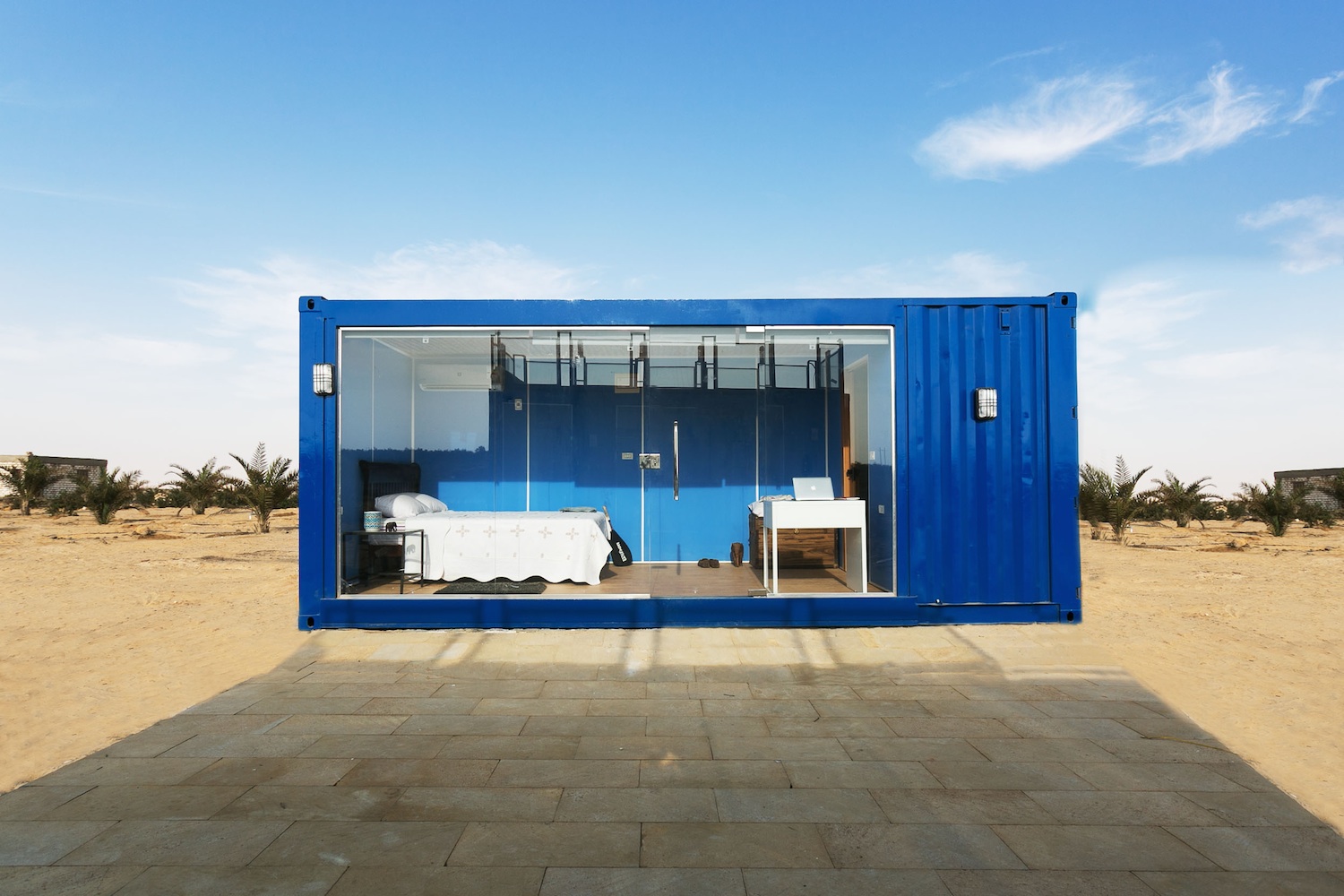Using cargotecture – container architecture – Karim Rafla and Youssef Farag are upcycling discarded shipping containers which would otherwise be left to rot, to create everything from houses to restaurants, to possible governmental projects.
“Architecture should speak for its time and place,” Frank Gehry once said. Ours is a time of excess, opulence, a time of more is more; where countries are vying for the privilege of building the tallest tower in the world, the most luxurious hotel in the world, of submerging rooms, entire homes, under water. Just because. Inversely, it’s also a time where some realise the absurdity of this constant insatiable quest for more and instead of pushing to make more, push to reimagine what we already have.
Egyptian startup Qubix, founded by Youssef Farag and Karim Rafla, focuses on cargotecture; an amalgamation of cargo and architecture, the modern day mode of construction upcycles used shipping containers and uses them as the basis for structures – anything from homes to restaurants.
“Containers are thrown out once they’re past their shipping life,” explains Yousef Farag, co-founder of the company. Qubix repurposes those discarded containers to give them second life. The concept is not a new one – it was patented as far back as 1987 in the United States – but it one which has gone largely unutilised in the Arab world, Egypt in particular. Which is precisely why the two entrepreneurs initially started capitalising on it.
While coming up with a thesis model for his business project in London, Rafla came across the concept of cargotecture. “I found a place in London that was a city made entirely out of containers, restaurants, homes, shops, everything. So I said ‘why don’t we have this in Egypt?’” he recounts.
He moved back to Egypt, teamed up with his best friend Farag, and the two – neither of whom had a background in architecture or engineering as they had studied business and finance respectively – began to brainstorm how they could make this sustainable form of architecture a reality in their homeland. The duo brought on Fatma Moemen as their head architect and designer, and got to work. “It was literally a backyard startup,” Rafla says. “We bought our first 20-foot container, put it in Yousef’s garden, and just started experimenting.”
By mere virtue of reusing the existing instead of creating from scratch, thousands of kilograms of steel are saved, as is cost – “when you compare it to traditional brick and mortar buildings, containers are made up of much cheaper materials,” Farag explains. There also arises a strange duality when it comes to cargotecture; the structures are by nature built to be strong and as such function as resilient buildings; at the same time, they are easily movable and are vastly versatile in nature. The modular structures only come in two sizes – 20 feet and 40 feet – but by default of their design, they are created to interlock, which makes their possibilities endless.
They began working on their prototype in March 2016 and by August, had their first order. In six short months, the duo have already delivered a fully functional home in Beni Suef, a BeFit training facility in Maadi, and are currently working on a restaurant. The inherent success of the concept of cargotecture hinges on the sheer practicality of it. “It’s environmentally friendly, it’s cost-efficient, it’s sustainable, it’s faster to build, it’s stronger as a structure, and it’s adaptable to any industry,” Rafla explains of the innocuously ingenious shipping container. “It’s such a brilliant idea; it’s one of those things that don’t exist in Egypt and you’re lucky enough to be the pioneer of it.”
Companies sell containers once they’re past their shipping life. Qubix assess the leftover metal boxes for structural integrity and to ensure no chemical usage. “We have to make sure there’s nothing hazardous, nothing chemical that could harm user in the future,” explains Rafla, “We usually look for containers that were used for textiles or machinery.” After the containers pass inspection, it’s fair game.
The innate malleability of the structures makes them ideal for a myriad of things, and the founders envision them playing a greater role in Egypt – from startups to low income housing. “Cargotecture is very promising because it offers limitless possibilities,” emphasizes head designer Fatma Moemen, “I see this becoming very successful in the future. It would open up a lot of possibilities for Egypt, especially for people with startups; for instance for people our age who want to have their own business or company, this would be perfect for them because it’s cost efficient.”
Click here to go to the original source


